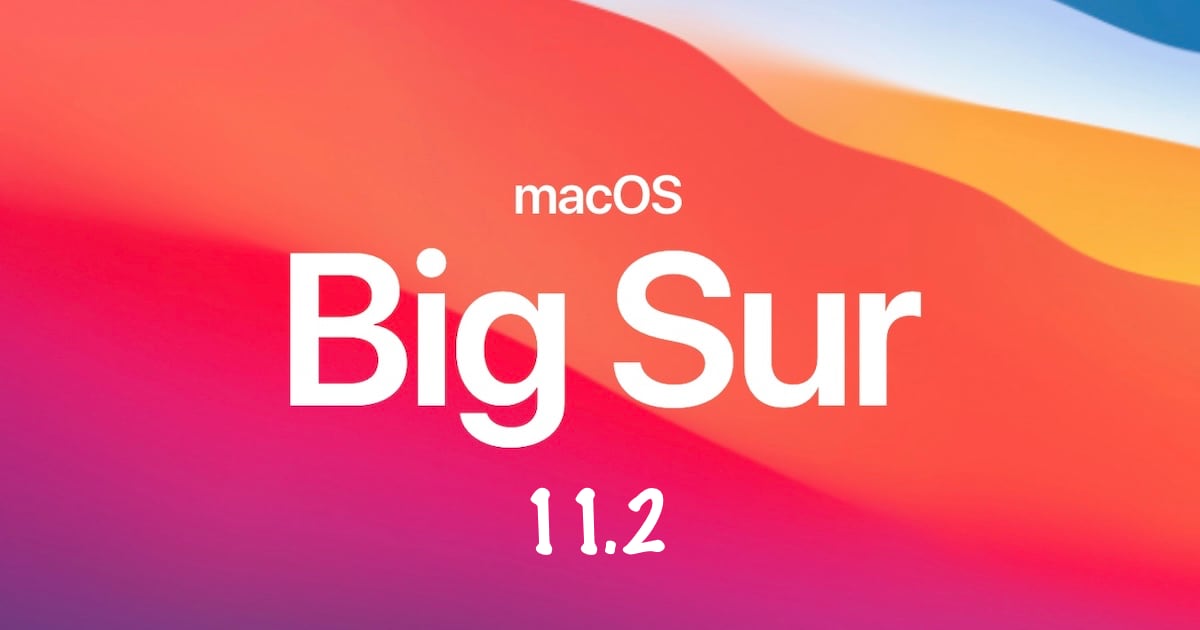Apple has released macOS Big Sur 11.2 to all users. The update does not contain any new noticeable features but it has a number of bug fixes for Bluetooth, external display connectivity with M1 Macs, iCloud Drive, System Preferences, keyboard, and more.
To upgrade to macOS 11.2, simply open System Preferences > Software Update on your Mac, and click on the Update Now button. Make sure that your Mac is plugged in throughout the update process.

What’s new in macOS Big Sur 11.2?
Apple had been testing macOS 11.2 with developers and beta testers since December 2020, and released just a couple of betas before rolling out the release candidate, Only two release candidates were made available before this final version.
This update, despite having a major version number upgrade, only features a few bug fixes related to Bluetooth reliability, external displays showing black screen with M1 Mac mini, Apple ProRAW editing in Photos apps, iCloud Drive, System Preferences, and globe key issue.
Here are the complete release notes from Apple:
macOS Big Sur 11.2 improves Bluetooth reliability and fixes the following issues:
– External displays may show a black screen when connected to a Mac mini (M1, 2020) using an HDMI to DVI converter
– Edits to Apple ProRAW photos in the Photos app may not save
– iCloud Drive could turn off after disabling the iCloud Drive Desktop & Documents Folders option
– System Preferences may not unlock when entering your administrator password
– Globe key may not display the Emoji & Symbols pane when pressed
This update also contains a change, not documented in the release notes, which restricts Apple’s Mac apps from bypassing firewalls and VPNs. It is unclear if this update also fixes the macOS Big Sur Screensaver bug and M1 Mac ultrawide monitor resolution issue.
macOS Big Sur 11.2 compatible Macs
If you have any of the following Macs models, you should be able to easily upgrade to macOS Big Sur 11.2:
- MacBook Air (2013 and newer)
- MacBook Pro (late 2013 and newer)
- MacBook (2015 and newer)
- iMac (2014 and newer)
- iMac Pro (2017 and newer)
- Mac mini (2014 and newer)
- Mac Pro (2013 and newer)
Users on older Macs can try our guide to install macOS Big Sur on unsupported Macs, however, results might vary.
5 comments